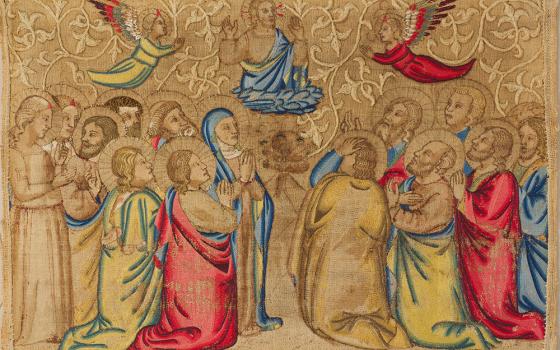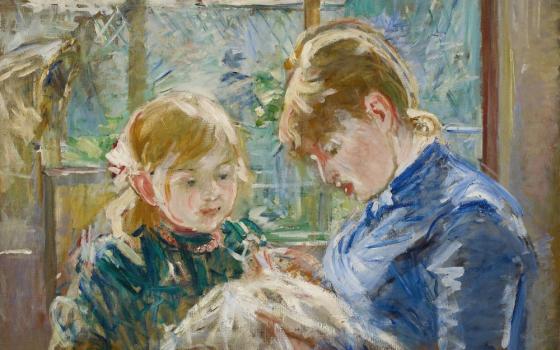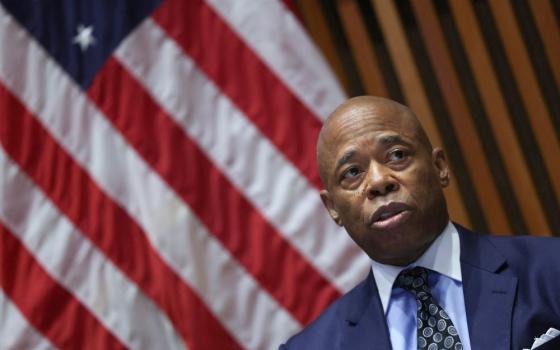Politics are dirty. Our country is founded upon the values, aspirations and hard work of "we the people." Yet too often, our voices are drowned out by the big money of corporations, political action committees, and campaign donors. To overcome this distortion of democracy, all who are able must vote.
The Nov. 4 midterm elections will determine which party will have the majority in Congress. These legislators will be charged with crafting federal legislation on anything from immigration to taxes to the environment for the next two to six years.
Will you vote?
NETWORK's Nuns on the Bus have been on the road for almost a month now, engaging the public in an effort to mobilize voters. These nuns are not taking the right to vote lightly. A particular nun on the bus recalled how her mother had to wait a year after turning 18 to vote because women did not yet have the right. Her mother told her to never, ever take that right for granted.
Seeing the lengths people are willing to go to in places like Hong Kong for the sake of autonomy and a democratic government, and recognizing that only about 15 percent of people in the United States are closely following the midterm elections, the question surfaces: Is voting merely a right, or is it also a responsibility? Can we wash our hands of this political process?
My response to this question lies in the social roles that we all occupy. Each role has responsibilities that go along with it. Parents have the responsibility to care for their children. A police officer has the responsibility to protect citizens. A teacher has the responsibility to educate students. Without fulfilling these responsibilities, these roles could not continue, and society would not function as it does.
In the same way, members of a democracy have the responsibility to vote.
By living in a certain community, a person is thereby agreeing to the responsibilities entailed in being a member of that community. Civil society is not merely a group of buildings organized by a collection of laws. No, it is also a community of people who pledge to live together. Living together means participating in the common good. If no one fulfilled the social role as a voter and member of the democratic body, the democracy would cease to exist in any meaningful way.
If we look to Catholic social teaching, the call to vote is entailed in the theme of the call to family and participation as well as the theme of rights and responsibilities. These themes have been further extrapolated into the principles of association, participation and the common good. In essence, we are social beings whose dignity is more fully realized in community. We have both a right and a responsibility to take part in that community, participating in the cultivation of the well being of all, especially those that society tends to exclude. This includes work, education, and political participation.
The USCCB reminds us that we have a dual heritage as both faithful Catholics and American citizens. We have the right and responsibility to participate fully in public life. In its 2007 document "Forming Consciences for Faithful Citizenship," the bishops hold us accountable, saying, "In the Catholic Tradition, responsible citizenship is a virtue, and participation in political life is a moral obligation."
Our pope admonishes those who avoid politics, saying, "None of us can say, 'I have nothing to do with this, they govern.' ... No, no, I am responsible for their governance, and I have to do the best so that they govern well, and I have to do my best by participating in politics according to my ability. Politics, according to the social doctrine of the church, is one of the highest forms of charity, because it serves the common good. I cannot wash my hands, eh? We all have to give something!"
To be a citizen is to vote. This responsibility is inherent in the social role itself. To refuse to vote is a denial of that role, which, on a large scale, could lead to the demise of democracy itself.
To be a Catholic is also to vote. We have the moral obligation to participate fully in the public life and to look out for the common good. We cannot wash our hands of this.







